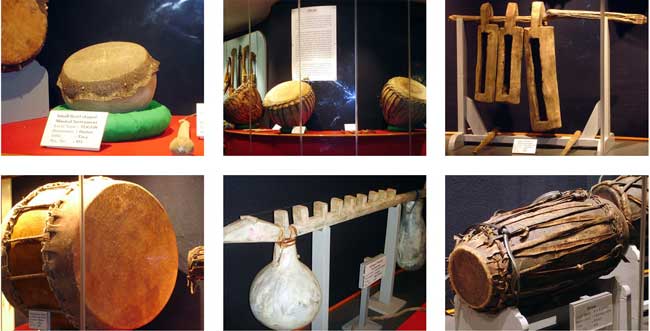
By Kamayani Bali Mahabal | To read the full article with images, click here >>
Filmmaker Aditya Seth demystifies the traditions and culture of the matrilineal Khasi tribe of Meghalaya, as they discover their place in a fast-changing world.
[…] In his latest 60-minute documentary, ‘Are They Better Off’, screened recently at the National Centre for the Performing Arts (NCPA) in Mumbai, multiple award-winning director, Aditya Seth has highlighted these amazing “Meghalayan values,” even as he tries to explore the slowly diminishing Khasi culture, and the challenges the tribe faces today. […]
“We have grown up in an environment where sex selection is rampant, so it was intriguing to learn that there is actually a social order where women are dignified and not discriminated against. To me, this was very fascinating and I decided to go to Meghalaya and see how things work there.”
Under the matrilineal system, the family lineage is passed on through the mother’s clan line, or ‘kur,’ and the youngest daughters are the Khatduhs, or the custodians of the ancestral property. “The reason being that they will logically live the longest,” says Seth, who has portrayed the system and its socio-political complexities through the lives and experiences of his three female protagonists – 52-year-old Hulda Kynta, 29-year-old Selinda Kharbuki and 23-year-old Jubelee Kharmujai. […]
Today, the Khasi community can take immense satisfaction from the fact that they don’t give or take dowry, their women have inheritance rights and they are also comparatively freer than their counterparts in the rest of the country. But that doesn’t necessarily mean that they are better off. Things are slowly taking a turn on account of education and economic compulsions, among other things, which are creating the conditions for change.
Of the different factors that are influencing change in their traditional system, migration is perhaps the most significant. “That’s why I have dealt with this concern and explored the links between migration and culture. Since the youth is moving to the cities for education, or in search of more lucrative work opportunities, Khasi grandparents and parents fear that their next generation will not take forward their traditions,” shares Sethi, who took two years to make the film. […]
In one of the scenes, amidst the earthy sounds of the beating drums, reminiscent of the Nongkrem Dance Festival, performed to appease the all-powerful Goddess Ka Blei Synshar for a rich harvest and prosperity of the people, the camera focuses on a Khasi woman who says, poignantly, “When they look at a matrilineal system, the country looks at it through one lens – that the women here are better off, powerful, decision-makers… but they are wrong.” From her, the frame shifts to a Khasi man who says, “We don’t want patriarchy but patriliny just for the Khasi male to shoulder some responsibility.”
Clearly, there’s a struggle of mindsets at play now, one that is making the elders uncomfortable. […]
So where, on the one hand, women continue to enjoy greater social mobility and a protected inheritance, they find themselves denied their political rights. The men, too, see themselves as outsiders in the family and are prone to adultery and drug addiction to “deal with this situation.” These, undoubtedly, are complicated times for them.
Source: TBI Blogs, “A Look at the Matrilineal Khasi Tribe in Meghalaya, and the Women Who Are Its Custodians” by Kamayani Bali Mahabal
URL: https://www.thebetterindia.com/70021/matrilineal-khasi-tribe-meghalaya/
Date Visited: 17 January 2022
[Bold typeface added above for emphasis]
Find scholarly books, poetry and fiction relating to tribal culture – Indian publishers
List of sites covered by this Google custom search engine
To find children’s and educational books or search Indian periodicals, magazines, web portals and other sources safely, click here >>
Search tips
Combine the name of any particular state, language or region with that of any tribal (Adivasi) community.
Add keywords of special interest (music, poetry, dance just as health, sacred grove and biodiversity); learn about the rights of Scheduled Tribes such as the “Forest Rights Act” (FRA); and the United Nations “Declaration on the Rights of Indigenous Peoples”, “Universal Declaration of Human Rights”, “women’s rights”, or “children’s right to education”.
Ask a question that includes “tribal” or “Adivasi”, for instance: “Adivasi way of life better?” (or “tribal way of life worse?”)
Specify any particular issue or news item (biodiversity, bonded labour and human trafficking, climate change, ecology, economic development, ethnobotany, ethnomedicine, global warming, hunter-gatherers in a particular region or state, prevention of rural poverty, water access).
For official figures include “scheduled tribe ST” along with a union state or region: e.g. “Chhattisgarh ST community”, “Himalayan tribe”, “Scheduled tribe Tamil Nadu census”, “ST Kerala census”, “Particularly Vulnerable Tribal Group Jharkhand”, “PVTG Rajasthan”, “Adivasi ST Kerala”, “Adibasi ST West Bengal” etc.
In case the Google Custom Search window is not displayed here try the following: (1) toggle between “Reader” and regular viewing; (2) in your browser’s Security settings select “Enable JavaScript” | More tips >>
Note: hyperlinks and quotes are meant for fact-checking and information purposes only | Disclaimer >>
Tips for using interactive maps
Toggle to normal view (from reader view) should the interactive map not be displayed by your tablet, smartphone or pc browser
For details and hyperlinks click on the rectangular button (left on the map’s header)
Scroll and click on one of the markers for information of special interest
Explore India’s tribal cultural heritage with the help of another interactive map >>
Find publications by reputed authors (add “open access” for freely downloadable content)

To view and learn more visit its Musical Instruments Gallery >>
More about Meghalaya >>